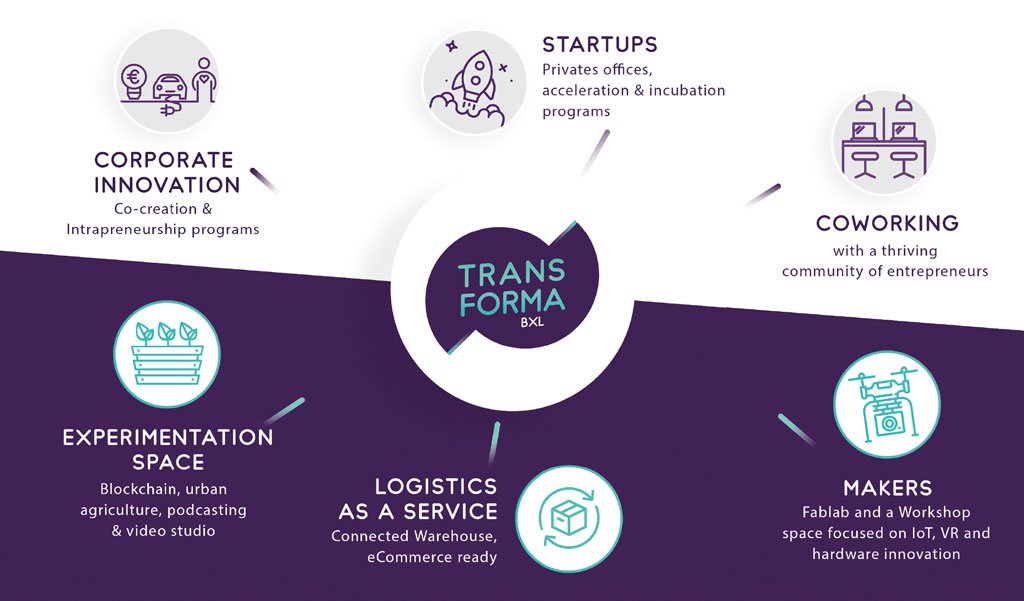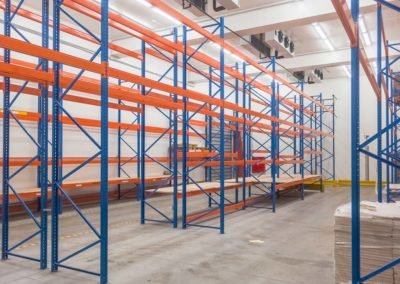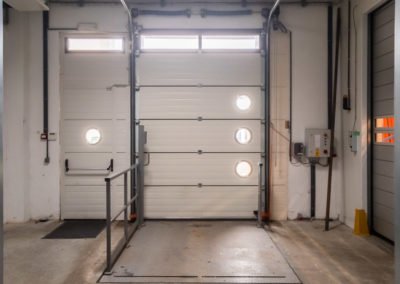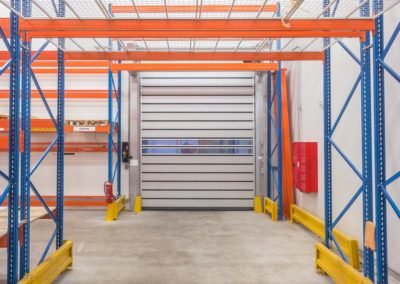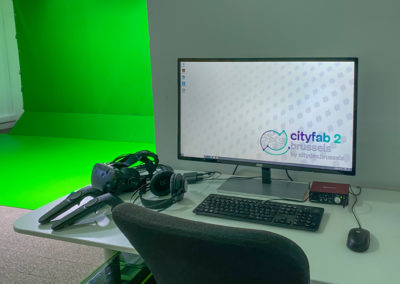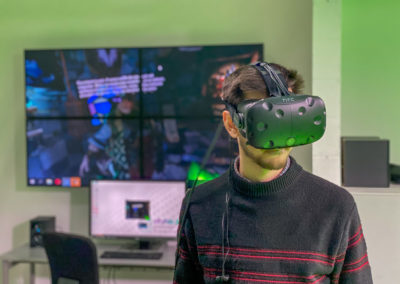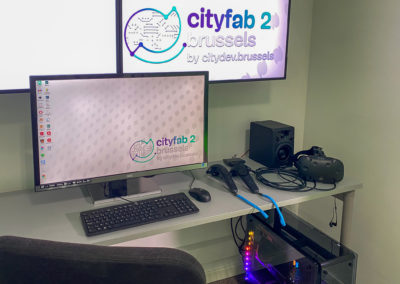From a coworking space to an entrepreneurial ecosystem – How we facilitate sustainable innovation
How we bootstrapped our coworking space – Part 3
Three and a half years ago, we embarked on a crazy adventure to launch a coworking space from scratch with no investments to start with. This is the third part of our story: how we went from 0 to 2700m2 in just three years and how we created a complete entrepreneurial ecosystem to facilitate sustainable innovation (read Part 1 and Part 2).
Where we left off
It is the beginning of 2016 and we have settled well into our 800m2 space. Our community of coworkers and startups is growing steadily and carrying out interesting projects. New members join us every month.
Our Innovation Garden is very popular with corporates and NGOs who love organising their co-creation meetings there, and our innovation workshops are gaining momentum with companies.
It is time to grow and to expand our activity. We want to occupy the whole building and to cover the 2700m2 of space available.
Work, Co-create, Innovate, Make!
Our fablab (built in collaboration with the Region of Brussels and CityDev), a hardware prototyping space and a logistics-as-a-service offering (warehousing, handling, production…) now give our members the possibility to research and prototype new products, receive and store components as well as end products ready for shipment.
They have their stock of end products within reach which allows them to organise and supervise handling, and shipment operations in transforma bxl whenever they need to.
We are also working with partners to provide our members with the services and workforce they need to run these activities. They can go from consultancy on rapid prototyping and idea validation to e-commerce fulfillment services, stock management and local production.
Building an entrepreneurial ecosystem: helping corporates, SMEs and non-profits transition into 21st century organisations
A tidal wave of disruption is hitting our society and it is happening at an unprecedented pace. Let’s look at the transportation sector as an example. Research by the likes of Stanford economist Tony Seba predicts that by 2030, 95% of mobility needs in the USA will be fulfilled by autonomous, self driven electric cars, on an on-demand basis. Just like that, within 12 years, the whole transportation sector is changed and production of vehicles will drop by 80%.
This is the type of disruption we are going through, and it will have a ripple effect on the whole economy. Entire industries will disappear, while new ones will appear. The first industrial revolution brought urbanisation, labor rights, days off and paid vacations which created the hospitality, tourism and entertainment industries. The second revolution brought mass consumption, what will the third industrial revolution bring?
The third industrial revolution and the need for sustainable innovation
We believe that Jeremy Rifkin is right, that the 3rd industrial revolution is in the making and it won’t take too long before transformative changes take place in our society.
The first and second industrial revolutions happened when new means of communication, energy and transportation systems converged: steam engines powered by coal and the printing machine led to the first industrial revolution.
The internal combustion engine powered by oil and the telephone, and later radio and television led to the second industrial revolution and the emergence of a mass consumption society.
The third industrial revolution will be clean and distributed, decentralized and driven by the internet, renewable energy organised in grids and electric driverless transportation. This new industrial revolution will be even more transformational than the previous two combined, with the convergence of other technologies coming together.
The blockchain, the internet of things and artificial intelligence combined with a new global consciousness that is concerned about our environmental footprint is creating a new model for our society.
At transforma bxl, sustainable innovation is in our DNA
We cannot afford to consider sustainability as a “nice-to-have” box in an end-of-year report. It is not only an imperative concern to tackle pressing global challenges but it is also a source of great opportunities.
At transforma bxl, we approach sustainability as a business-as-usual prerequisite and integrate it into all of our efforts in generating innovation.In today’s world, if an emerging business model, product or service is not sustainable, then it’s not innovative, period.
We believe that in this day and age, every new product or service, every business model that claims to be innovative needs to take into account two questions “What is my impact on the planet?” and “What is my impact on society?” If it doesn’t, then it is not truly innovative.
In the same way that the first two industrial revolutions reshaped our society and the lifestyle of people for generations, the current revolution will radically transform the way we approach work, how we organise life in the cities and around them, as well as our relationship with policy making and governance
In other words, everything is to be reinvented – for the better. We are convinced that we must be at the forefront of this transformation! Remember? We are called transforma Brussels after all.
The need to reinvent our society
How will our society be affected by these changes? How will our relation to work evolve and how are we going to manage our cities? We’ve seen it in the past: changes in the economy affect changes in the society. Today, more than ever, we as citizens and entrepreneurs have the opportunity to radically impact our society.
What common story do we want to write and what society do we want to shape?
The future is bright, and exciting, let’s get to work and transform it!
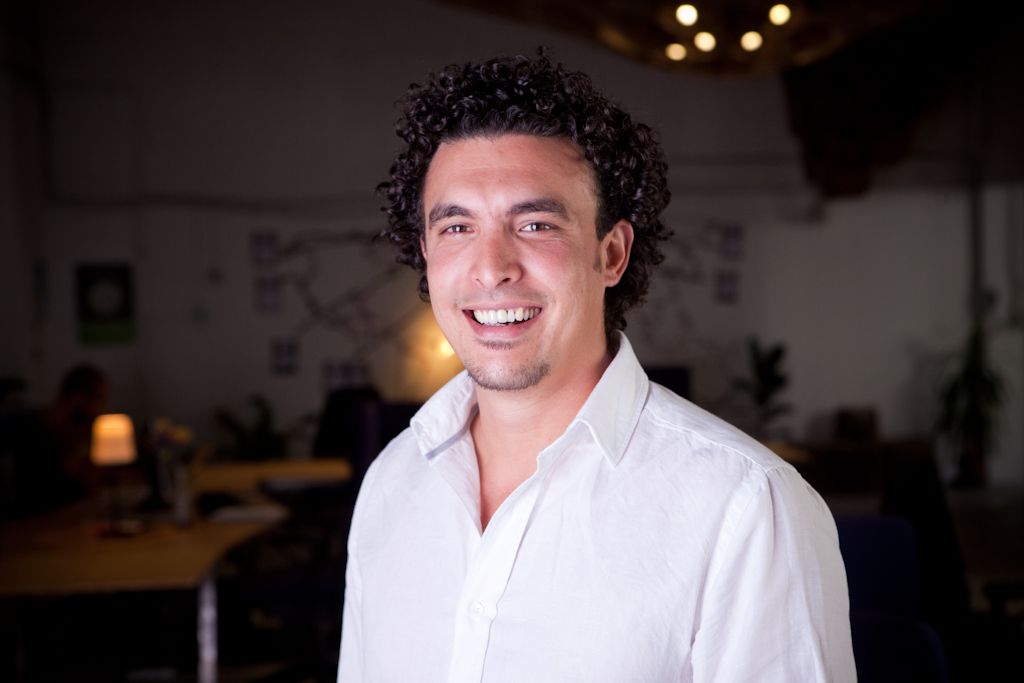
Anis Bedda
Co-founder at transforma bxl
Anis is the the cofounder of BottomUp Innovation, a company helping organisations innovate from the bottom up using the principles of intrapreneurship, open innovation and crowd sourcing. (Read More)




